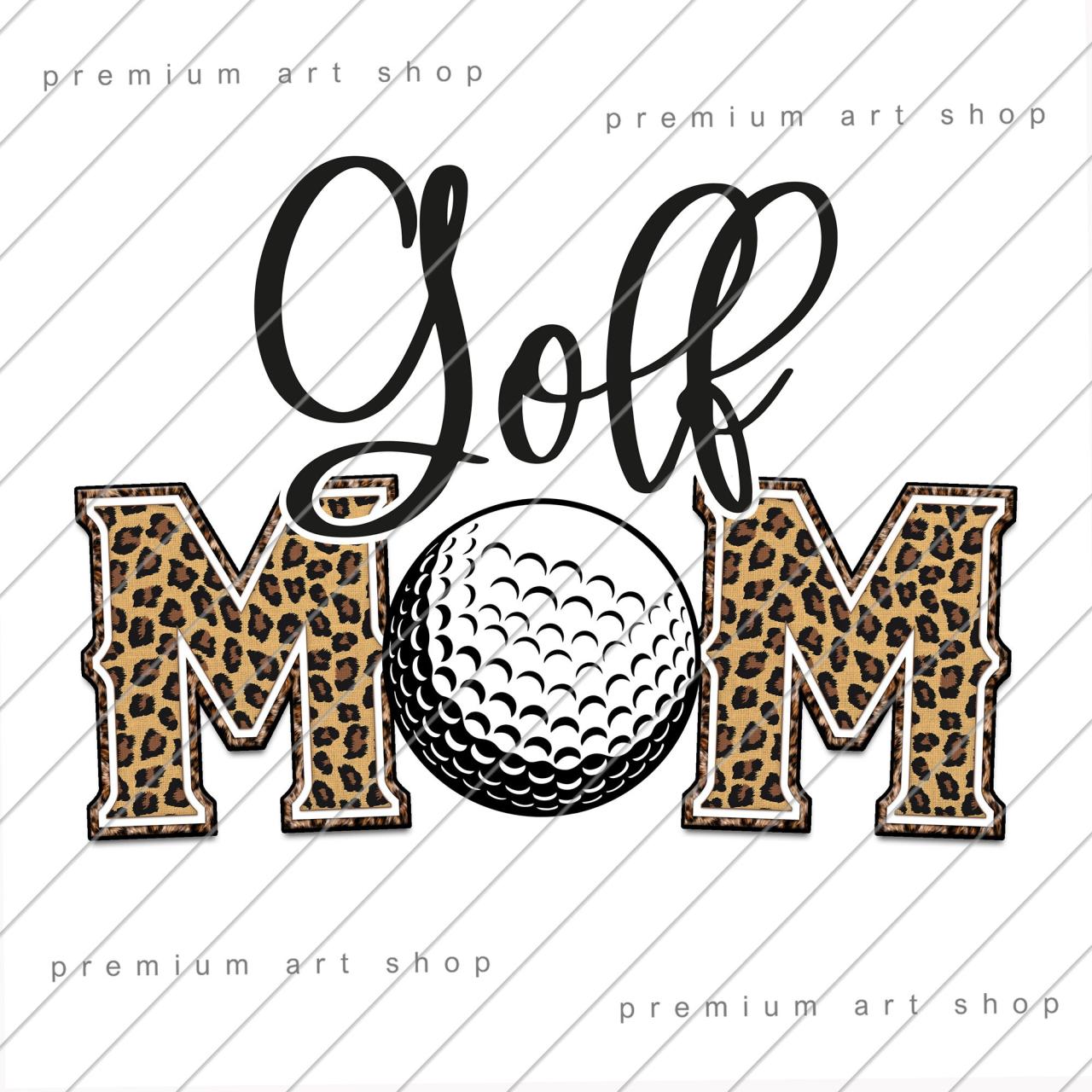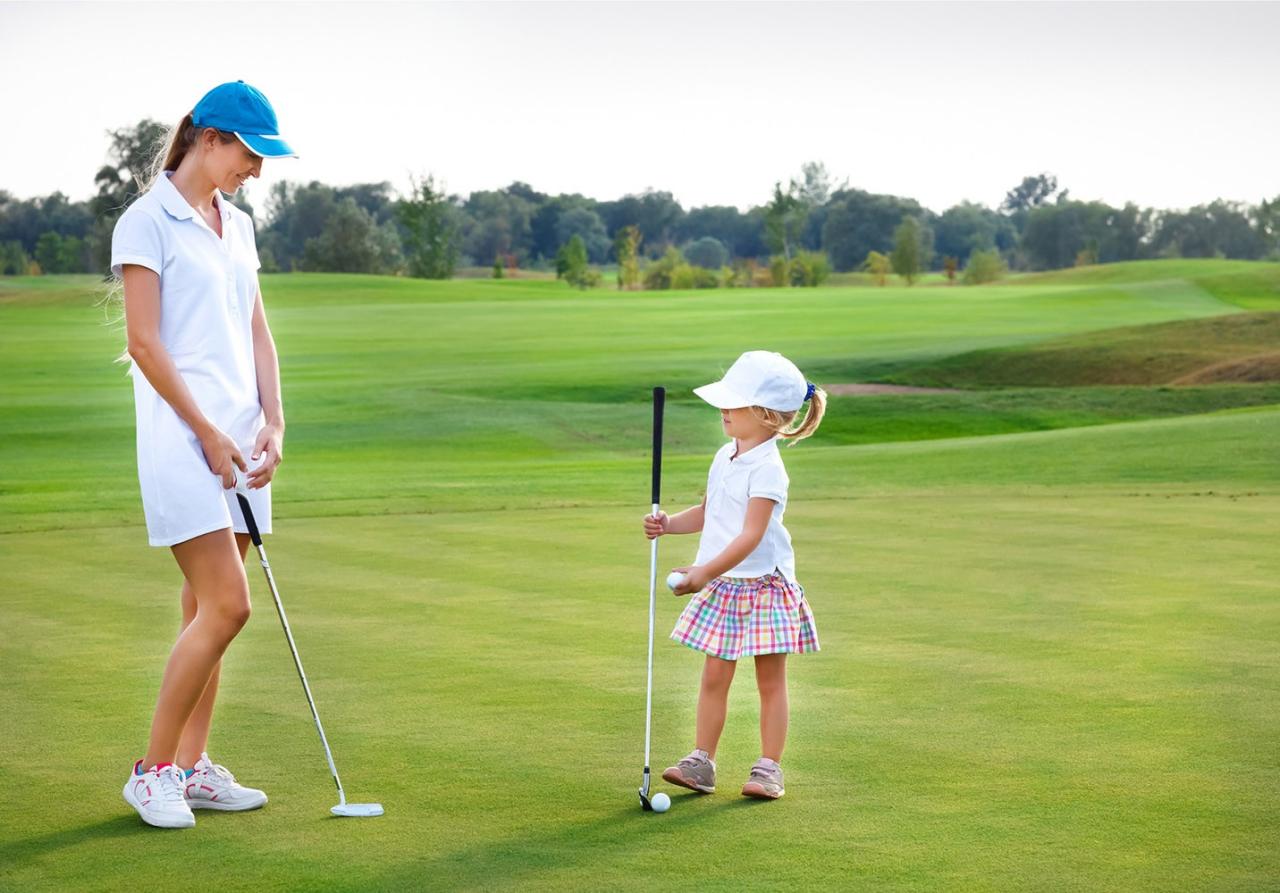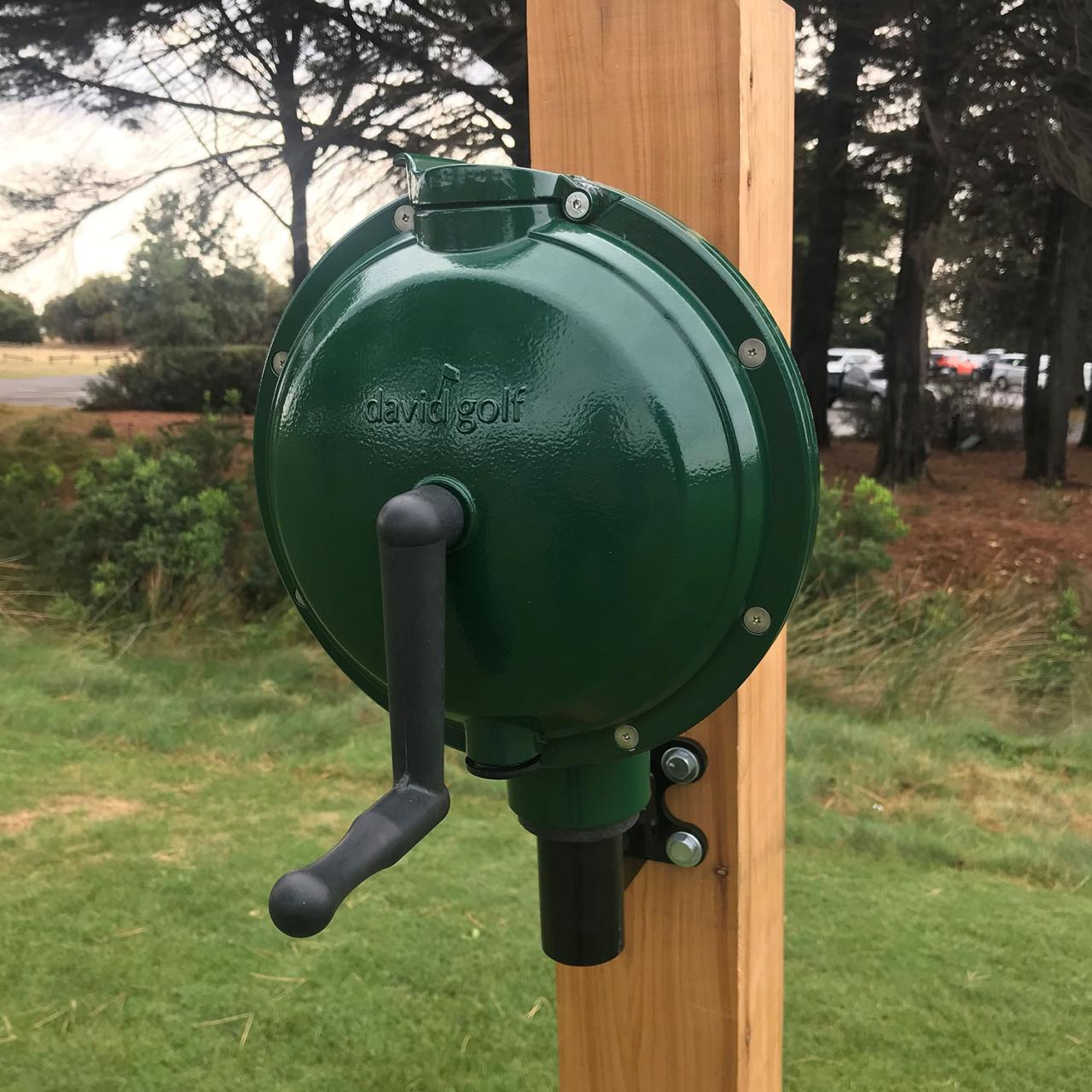Golf Mom, a term that conjures up images of perfectly manicured lawns, designer sportswear, and a seemingly effortless lifestyle, has evolved into a cultural phenomenon. This stereotype, once confined to the green fairways of country clubs, has permeated popular culture and media, reflecting changing societal norms and gender roles.
The archetype of the “Golf Mom” has become a source of fascination and debate, sparking conversations about class, leisure, and the changing landscape of femininity. This article delves into the origins, characteristics, and impact of the “Golf Mom” stereotype, exploring how it has shaped perceptions and influenced consumerism.
The Evolution of the “Golf Mom” Stereotype
The “golf mom” stereotype has been a fixture in popular culture for decades, often portraying a woman who is deeply invested in her children’s athletic pursuits, particularly in golf. This image has evolved over time, reflecting changing societal norms and gender roles.
The Origins and Historical Context, Golf mom
The “golf mom” stereotype emerged in the latter half of the 20th century, coinciding with the rise of suburban culture and the growing popularity of youth sports. This era saw an increase in women’s participation in the workforce, with many mothers taking on the role of primary caregivers while also managing their careers.
The “golf mom” stereotype, in its early iterations, often depicted a woman who was dedicated to her children’s athletic success, often at the expense of her own personal interests.
The Evolution of the Stereotype in Popular Culture
The “golf mom” stereotype has been frequently depicted in popular culture, with television shows, movies, and books offering various portrayals.
- In the 1980s, the sitcom “Diff’rent Strokes” featured the character of Kimberly Drummond, a stay-at-home mom who was fiercely dedicated to her sons’ athletic pursuits. This character, while not explicitly a “golf mom,” embodied many of the traits associated with the stereotype, such as her unwavering support and dedication to her children’s success.
- The 1996 film “Happy Gilmore” featured a scene where Adam Sandler’s character, Happy, encounters a group of “golf moms” who are intensely competitive and invested in their children’s golfing abilities. This scene, while comedic, served as a popular cultural reference to the “golf mom” stereotype.
- More recently, the television show “Modern Family” featured the character of Gloria Pritchett, a stay-at-home mom who is fiercely supportive of her son’s golf career. While Gloria’s character is portrayed as more sophisticated and modern than the traditional “golf mom” stereotype, she still embodies many of the traits associated with the role, such as her dedication to her son’s success and her involvement in his athletic pursuits.
Shifting Societal Norms and Gender Roles
Over time, the “golf mom” stereotype has shifted to reflect changing societal norms and gender roles. While the traditional image of the “golf mom” often depicted a woman who was primarily focused on her children’s athletic pursuits, modern portrayals often present a more nuanced and multifaceted view.
- The rise of dual-income households has led to a more equal distribution of responsibilities between mothers and fathers. This shift has resulted in a more balanced portrayal of “golf moms” in popular culture, with many modern depictions showcasing women who are actively involved in their children’s lives while also pursuing their own careers and interests.
- The growing emphasis on female empowerment and gender equality has also influenced the portrayal of “golf moms” in popular culture. Modern depictions often present “golf moms” as strong, independent women who are supportive of their children’s athletic pursuits while also maintaining their own identities and aspirations.
- The stereotype has also become more inclusive, with portrayals of “golf moms” from diverse backgrounds and ethnicities. This shift reflects the increasing diversity of American society and the growing recognition of the importance of representation in popular culture.
Characteristics and Behaviors of “Golf Moms”

The “golf mom” stereotype, while often exaggerated, reflects a specific demographic with distinct characteristics and behaviors. These women are typically affluent, active, and deeply involved in their children’s lives, often using golf as a platform for socializing and networking.
Lifestyle and Activities
The “golf mom” lifestyle is characterized by a strong emphasis on family, leisure activities, and social connections.
- Active Participation in Golf:“Golf moms” are typically avid golfers themselves, participating in tournaments, leagues, and social outings. They may have a dedicated golf wardrobe, equipment, and even a home golf simulator.
- Family-Oriented Activities:Golf is often a family affair for “golf moms,” with children participating in junior golf programs and family outings at the course. These activities foster a strong sense of community and shared experiences.
- Social Networking and Philanthropy:Golf courses provide a natural setting for “golf moms” to socialize and network. They may participate in charity golf tournaments or contribute to organizations supporting youth development and education.
- Travel and Leisure:“Golf moms” often enjoy traveling to prestigious golf destinations, attending tournaments, and exploring new courses. This lifestyle is often associated with luxury travel and upscale experiences.
Social Dynamics and Relationships
The “golf mom” community is characterized by strong social bonds and a sense of shared values.
- Networking and Camaraderie:Golf courses provide a platform for “golf moms” to build lasting friendships and professional connections. They may form close-knit groups, attend social events together, and support each other’s endeavors.
- Shared Interests and Values:“Golf moms” often share a common interest in golf, fitness, and family values. They may have similar educational backgrounds, career aspirations, and parenting styles, creating a sense of shared identity and understanding.
- Competitive Spirit:While the “golf mom” community is generally supportive, there is also a competitive spirit, particularly on the golf course. This healthy competition can foster a sense of accomplishment and personal growth.
- Philanthropic Involvement:“Golf moms” often use their social connections and resources to support charitable causes. They may participate in fundraising events, volunteer their time, or donate to organizations that align with their values.
The Role of Golf in “Golf Mom” Culture
For many “golf moms,” golf is more than just a sport; it’s a lifestyle. It’s a way to connect with their families, friends, and communities, and it often plays a significant role in shaping their identity.
The Social and Cultural Significance of Golf
The social and cultural aspects of golf contribute significantly to the “golf mom” identity. Golf is a sport that fosters community, encourages social interaction, and provides opportunities for networking. Golf courses are often seen as social hubs where families and friends gather for leisurely activities, tournaments, and social events.
This aspect of golf fosters a sense of belonging and community, making it a central part of the “golf mom” experience.
The Role of Golf in Family Life
Golf is often a family affair for “golf moms.” It provides opportunities for parents and children to bond over shared interests and create lasting memories. Many “golf moms” introduce their children to the game at a young age, fostering a love for the sport that can last a lifetime.
This shared experience strengthens family bonds and creates a sense of tradition.
Golf as a Source of Social Connection
For “golf moms,” golf is also a way to connect with friends and build relationships. Golf courses offer a relaxed and social environment where women can gather, chat, and enjoy each other’s company. The shared experience of playing golf creates a sense of camaraderie and strengthens bonds between friends.
The Role of Golf in Community Involvement
Many “golf moms” are actively involved in their local golf communities. They participate in tournaments, volunteer at charity events, and support local golf initiatives. This involvement provides a sense of purpose and allows them to give back to their communities.
It also helps to build a strong sense of community identity and pride.
“Golf Moms” and Consumerism
The “golf mom” archetype is not just a demographic but a powerful force in consumer culture. Their influence extends beyond the golf course, shaping trends and driving demand in various industries. This section delves into the relationship between “golf moms” and consumerism, exploring the products, brands, and services that cater to their specific needs and desires.
Marketing and Advertising’s Impact on the “Golf Mom” Stereotype
Marketers and advertisers have skillfully leveraged the “golf mom” stereotype to target this lucrative demographic. By understanding the unique characteristics and aspirations of “golf moms,” brands have effectively crafted campaigns and products that resonate with their values and lifestyles.
This section explores how marketing and advertising have shaped the “golf mom” stereotype and its impact on consumer behavior.
- Reinforcing Existing Stereotypes:Marketers often perpetuate existing stereotypes of “golf moms” as affluent, stylish, and active individuals who prioritize their families and leisure activities. This can lead to a narrow and sometimes inaccurate representation of this diverse group.
- Creating a Sense of Belonging:Advertising campaigns often portray “golf moms” as part of a community, emphasizing shared values and aspirations. This sense of belonging can encourage “golf moms” to identify with certain brands and products.
- Targeting Specific Needs and Desires:Marketers tailor their messaging and products to address the specific needs and desires of “golf moms.” For example, brands may highlight the importance of family time, style, and convenience in their advertising.
The “Golf Mom” in Modern Society

The “golf mom” stereotype, once a symbol of suburban leisure and affluence, has evolved significantly in recent years. With the changing landscape of social norms and the rise of social media, the “golf mom” identity has become more complex and multifaceted.
This section will delve into the modern perception and portrayal of the “golf mom” stereotype, exploring the influence of social media and online platforms on this identity, and analyzing how the stereotype intersects with other social and cultural trends.
The Evolving Perception of the “Golf Mom” Stereotype
The traditional image of the “golf mom” often depicted a stay-at-home mother, clad in designer sportswear, chauffeuring her children to various extracurricular activities and attending social gatherings at the country club. This portrayal, while prevalent in the past, has become increasingly outdated.
Today, the “golf mom” is more likely to be a working professional, juggling a demanding career with family life. This shift reflects the changing demographics of women in the workforce and the growing number of mothers who are actively involved in both professional and personal pursuits.
The Influence of Social Media on the “Golf Mom” Identity
Social media platforms like Instagram and Facebook have played a significant role in shaping the modern “golf mom” identity. These platforms have created a space for “golf moms” to connect, share experiences, and showcase their lifestyle. The prevalence of “golf mom” influencers and lifestyle bloggers has further contributed to the evolution of the stereotype.
These individuals often present a curated version of their lives, highlighting their passion for golf, fashion, and family.
“The ‘golf mom’ has become a social media phenomenon, with influencers showcasing their passion for the sport, their stylish outfits, and their active lifestyles.”
While social media can provide a platform for connection and empowerment, it can also contribute to unrealistic expectations and comparisons. The constant stream of curated content can create pressure for “golf moms” to conform to a certain image, leading to feelings of inadequacy or pressure to maintain a certain lifestyle.
The Intersection of the “Golf Mom” Stereotype with Other Social and Cultural Trends
The “golf mom” stereotype is not isolated from other social and cultural trends. It intersects with broader discussions about gender roles, parenting, and consumerism. For example, the increasing participation of women in golf has challenged traditional gender stereotypes associated with the sport.
The “golf mom” is often seen as a role model for young girls, demonstrating that women can be both successful professionals and passionate golfers. The “golf mom” stereotype also intersects with the growing trend of wellness and self-care. Many “golf moms” prioritize their health and well-being, viewing golf as a form of exercise and stress relief.
This trend is reflected in the rise of “wellness retreats” and “golf vacations” designed to cater to the needs of busy mothers.
“The modern ‘golf mom’ embodies a blend of professionalism, motherhood, and self-care, reflecting a changing societal landscape.”
The “golf mom” stereotype is not static but constantly evolving. As social norms and cultural trends continue to shift, the “golf mom” identity will continue to be redefined and reshaped.
Expert Answers
Is the “Golf Mom” stereotype always negative?
The “Golf Mom” stereotype can be perceived both positively and negatively, depending on individual perspectives and experiences. Some may see it as a symbol of affluence and leisure, while others may view it as a limiting and outdated representation of women.
How has social media impacted the “Golf Mom” stereotype?
Social media has amplified the “Golf Mom” stereotype, creating a platform for showcasing aspirational lifestyles and consumer products. This has both reinforced and challenged the stereotype, as it allows for greater diversity and representation within the “Golf Mom” community.

